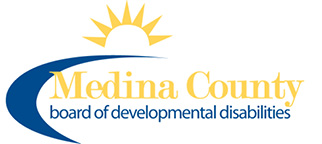Sponsored
Know all the Ways Your Child Should Grow
Height and weight. These are the two statistics we most commonly use to keep track of a child’s growth. But the truth is, growth should be measured in many other ways too. It is well known that the first three years of a child’s life are an amazing time of development and what happens during those years tends to stay with the child for a lifetime. In fact, in the first 1,000 days of life, a baby’s brain develops faster than any other time. That’s why it’s important for parents and families to know about developmental milestones.
The way a young child talks, plays and interacts with others gives important clues about their development. While there is some variation from child to child, skills like crawling, walking and talking tend to follow a general timeline. Experts call the appearance of the skills on these timelines “developmental milestones.” Milestones give a range of skills most children are able to do by a certain age. Seeing these skills at the right times shows they are developing and growing successfully.
While pediatricians will check developmental milestones at every well-child visit, experts urge all parents to know about developmental milestones and to watch their child for any potential delays. A delay is when a child does not reach milestones in the same basic age range as other children. If a parent thinks a child may be delayed, or if a child starts to not be able to do things they could do in the past, parents should seek help right away. It is important to bring up concerns with a pediatrician or health care provider as soon as possible. There are many health care providers who will help advocate for a child but it is often the parents who take the first step to make things happen. As a general rule, parents should trust their instincts, they know their child best. If something seems wrong about the way a young child moves or interacts, they should ask about it. Although parents may have concerns about labeling a child, the earlier a diagnosis is made, the better the chance for improving a child’s future success. Parents should not be afraid to take action and voice their concerns.
If concerns do arise, your doctor or other trained professional may use a developmental screening to identify delays. If a screening confirms a parent’s concern, it may lead to further steps like evaluation, diagnosis and treatment, which may include a referral to an Early Intervention Program. The idea behind early invention is that a child’s developmental delays can be addressed best when they are discovered early in life. Early intervention helps a family identify, find and use services that address a child’s needs and help them get back on track to reaching their full potential. The good news is with early detection, doctors and parents can work together sooner to help young children.
In Medina County, the Medina County Board of Developmental Disabilities Early Intervention Services finds resources for families to help get children back on track to meeting milestones. For more information contact the Medina County Board of Developmental Disabilities at 330-725-7751, option 1 or Ohio Early Intervention Services at 1-800-755-GROW.
Sponsored by:
Medina County Board of Developmental Disabilities
Opinions and claims expressed above are those of the author and do not necessarily reflect those of ScripType Publishing.
